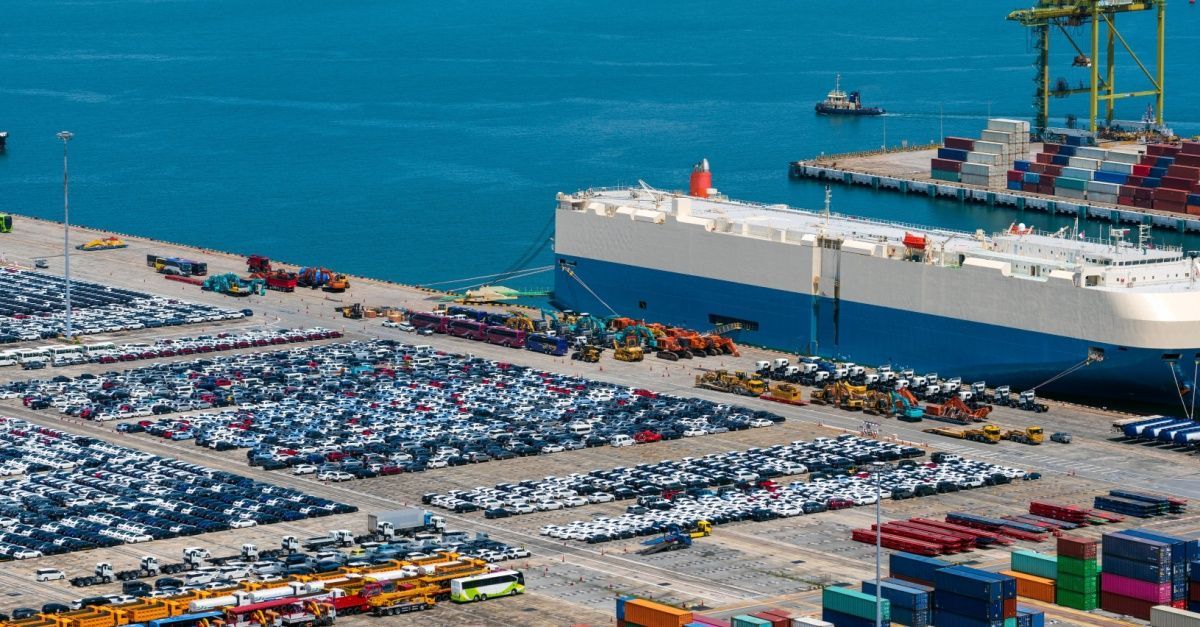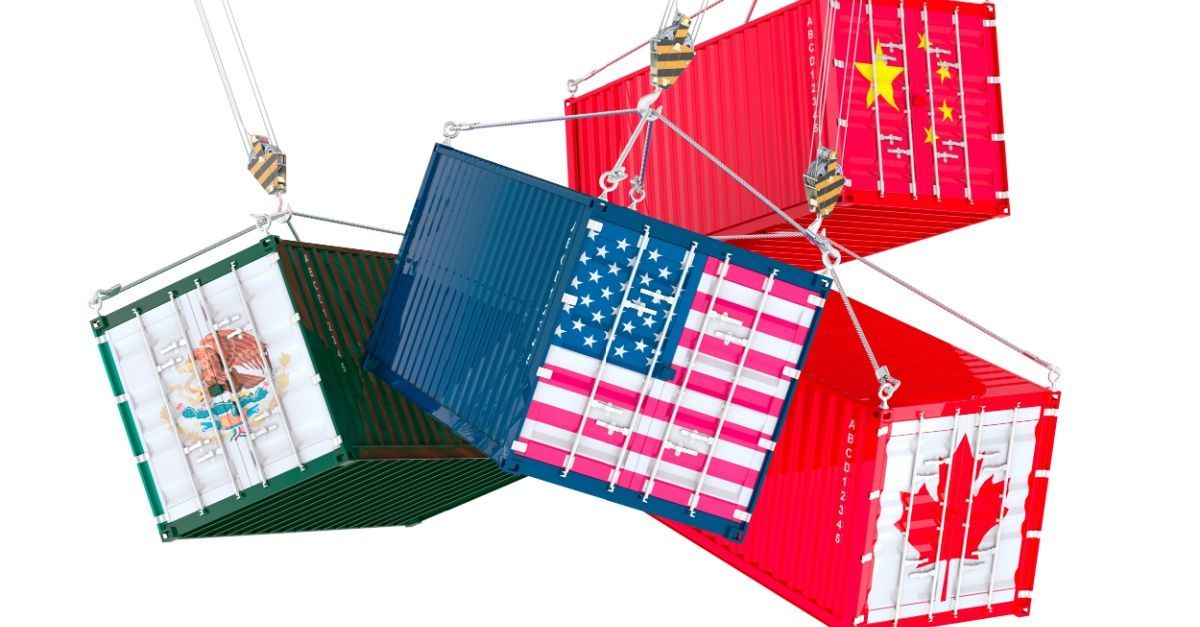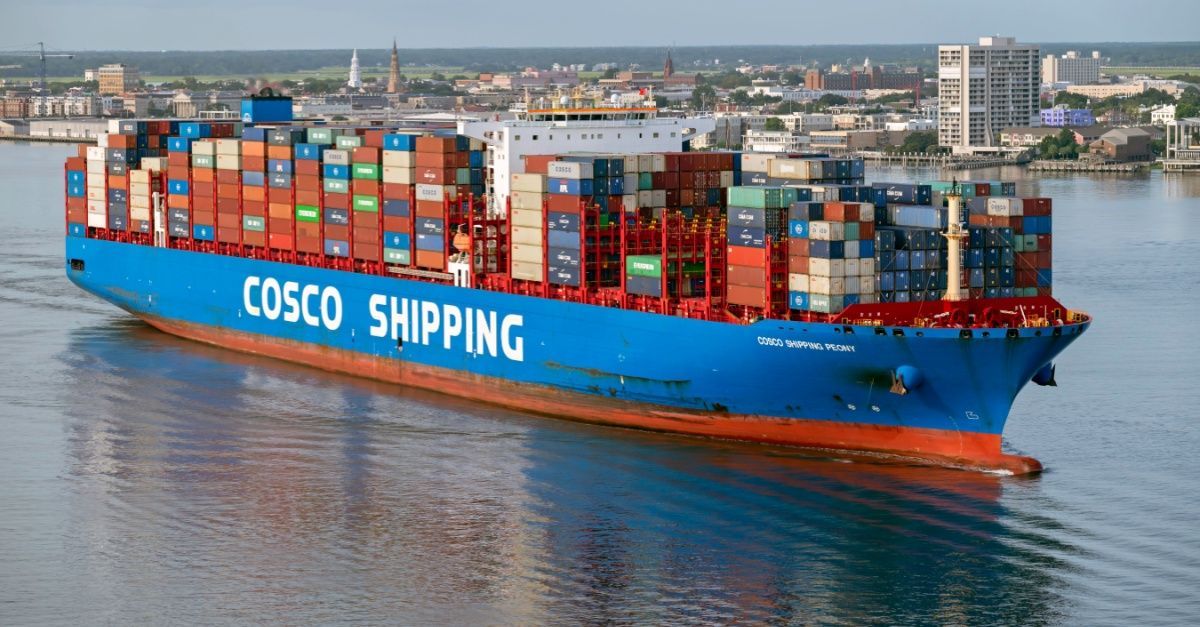The Next Big Logistics Risk: ILA Negotiations
Blog Post CTA
The supply chain world is no stranger to risks and disruptions. The past twelve months have seen everything from drought-related restrictions at the Panama Canal to diversions due to piracy in the Red Sea, from the Francis Scott Key Bridge collapse in Baltimore to unpredictable shipper demand and carrier capacity.
As we reach the halfway point of the year, the next big risk could be a labor strike at U.S. seaports, as negotiations are underway — yet stalled — for a new contract. Here are six headlines to keep up with the labor actions and other supply chain and logistics news.
A Possible Strike Looms
About 85,000 port workers along the East and Gulf Coasts are members of the International Longshoreman Association, or ILA, a labor union.
The ILA recently suspended contract negotiations with the U.S. Maritime Alliance (USMX), which represents employers at East and Gulf Coast ports,
the Loadstar reported. Central to the dispute was automation and how the technology is used at some seaports. For example, auto gates process trucks autonomously, without the need for labor. That violates the ILA contract, which is in effect until the end of September.
When the ILA found out that APM Terminals in Mobile, Alabama, was using an auto gate system, the union suspected other ports and terminals might be using that same technology, and the ILA suspended negotiations.
“This is a clear violation of our agreement and we will not tolerate it any longer,” a spokesperson for ILA said, per
the Loadstar.
Calling for Higher Wages
In addition to the automation issues, the ILA is also calling for higher wages for dockworkers, according to FreightWaves. The union’s rationale: Ocean carriers are bringing in “billions of dollars,” as reported in their public financial results.
“USMX member company’s profits are enormous,” the union wrote in a social media post, according to the FreightWaves article. “The ILA will demand wage increase commensurate with these revenues.”
Under the current contract, union members make between $20 and $37 per hour, depending on their jobs, skills, and years of experience. It’s not entirely clear what kind of raise the ILA will seek in negotiating the next contract.
If the negotiations continue to stall and a contract isn’t negotiated by the fall, workers could strike. That could have ripple effects throughout the supply chain, delaying trucks from being able to pick up containers and preventing shippers from
moving their goods in a timely fashion. But it would also draw attention to the labor issues at hand, and emphasize the importance of the port workers’ jobs.
The Slow Exit of Trucking Workers
As questions linger about the state of labor at the nation’s seaports, one thing is certain. The trucking industry is slowly shedding workers.
That’s what data from the Bureau of Transportation Statistics shows, according to an article in
Transport Topics. Last month, employment in the transportation and warehousing sector fell by 0.2% year-over-year, reaching 6.58 million workers in May 2024.
The numbers are more telling in truck transportation, specifically. Within that sector, Employment dropped 1.9% in the same time frame, marking the eighth month in a row that truck employment declined compared to the previous year. For-hire trucking shed 5,400 jobs last month.
Still, the trucking industry remains in a state of overcapacity, according to research analysts quoted in the article. One analyst said the dropping employment is a move in the right direction, but the gradual rate of change isn’t enough to rebalance the freight market, which has favored shippers for several months.
Werner Expresses Cautious Optimism
Werner Enterprises CEO and Chairman Derek Leathers agreed that the trucking market is “not yet really at an inflection point,” according to Trucking Dive.
At the height of the pandemic, several smaller carriers entered the market to keep up with soaring demand from shippers. But for the last two years, those carriers have started to exit the market – either through bankruptcy or being absorbed by a larger company. Small carriers continue to leave, leading to shrinking capacity which will likely push up truck freight rates.
But we’re not there just yet, Leathers hinted. As trucking carriers continue to exit, “we’re closer to the end than the beginning,” the chief executive said. But he said more attrition is necessary to truly rebalance the market.
Logistics Inflation Carries On
Even as we’ve been operating in a shipper’s market, logistics inflation continues to remain high. But costs are falling after rising for a couple of years.
Before the pandemic, logistics spend was around $1.5 trillion,
FreightWaves reported. Against that baseline, costs rose 22.4% in 2021 and almost 20% in 2022. But in 2023,
logistics costs dropped 11%, falling to $2.4 trillion.
The numbers are from a “State of Logistics” report from the Council of Supply Chain Management Professionals. One conclusion is that logistics executives view volatility as the normal condition for supply chains, making it essential to have a flexible warehousing and transportation network.
Pushing Back on EVs
Meanwhile on Capitol Hill, some senators are pushing back against the Biden administration’s electric vehicle goals, per Transport Topics.
A group of lawmakers introduced a bill that would require the Energy Department to use specific criteria to calculate the efficiency of
electric vehicles. The goal is to make sure there isn’t a “misinformed mandate” to adopt EVs, the publication said.
Other lawmakers have expressed concerns and frustrations that more progress hasn’t been made to build out electric vehicle charging infrastructure, which is essential to widespread adoption of the cars and trucks.
Additionally, some senators and congressmen are concerned that the plans to speed up EV adoption could harm American jobs, especially in industries like traditional automotive manufacturing, where many workers are trained and skilled in producing internal combustion engines.
Tackling Logistics Risks With Entourage Freight Solutions
Risks are simply a part of doing business in the supply chain world. Having a trusted partner to navigate the volatile trucking market and the various logistics disruptions can help keep operations running smoothly.
That’s where Entourage Freight Solutions comes in. EFS provides steady services that can help you navigate an ever-changing logistics environment and receive important information in real time.
Entourage Freight Solutions offers the following services, and many more:
- Our LTL service provides on-demand access to capacity, along with real-time data and peace of mind in this high-stakes world.
- Our Freight Management lets your team stay organized across inbound and outbound logistics, tracking market capacity and using automation notifications to keep everyone informed.
- Our Refrigerated transport provides expertise in everything from finished goods to raw materials, ensuring products arrive on time and in top condition.
Request a quote today to see how Entourage Freight Solutions can help with your freight movement and other supply chain needs.









